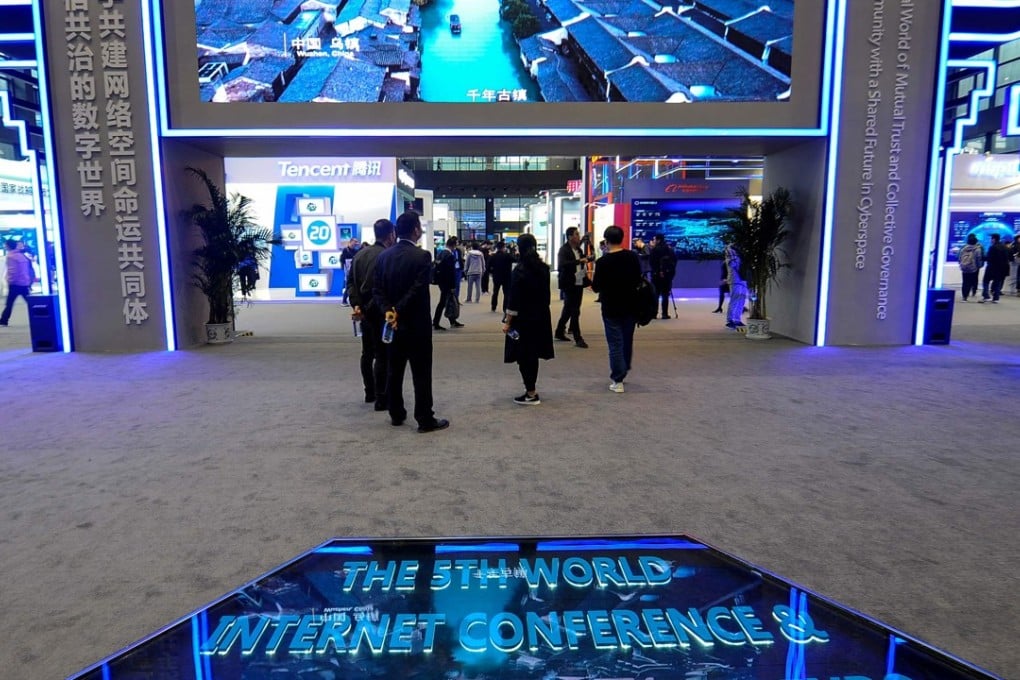Media, guests shut out of US-China cyber relations panel sessions at World Internet Conference in Wuzhen
- It was one of three sessions at the event that became ‘closed-door’ at the last minute
- Some on the invitation list said they were not told about the change beforehand

A panel discussion on US-China cyber relations was one of three sessions closed off at the last minute on Thursday to journalists, diplomats and guests at China’s World Internet Conference, an event meant to promote “openness and inclusiveness” in cyberspace.
The “International High-level Think Tank Forum on the Internet: China-US Relations in Cyberspace” was one of the few highly anticipated panels at the annual gathering in Wuzhen – already lacklustre this year with the absence of top US tech executives amid the bitter trade war.
But when media and guests arrived half an hour before the panel was due to start, it suddenly became “invitation only”. Journalists received a text message from the organisers at that time, saying the session was a “closed-door meeting” and would not be open to the media.
Although it had been listed in the conference brochure and media handbook, organisers turning away the crowd held out a list of about 100 “invited guests” – anyone whose name was not on the list could not go in. Even attempts to snap a photo of the meeting room through the door were stopped.

Two other panel sessions – one on personal data privacy and another on “norms in cyberspace” – were also closed off to the public at the last minute, to the frustration of the journalists, diplomats and foreign guests who were shut out of them.